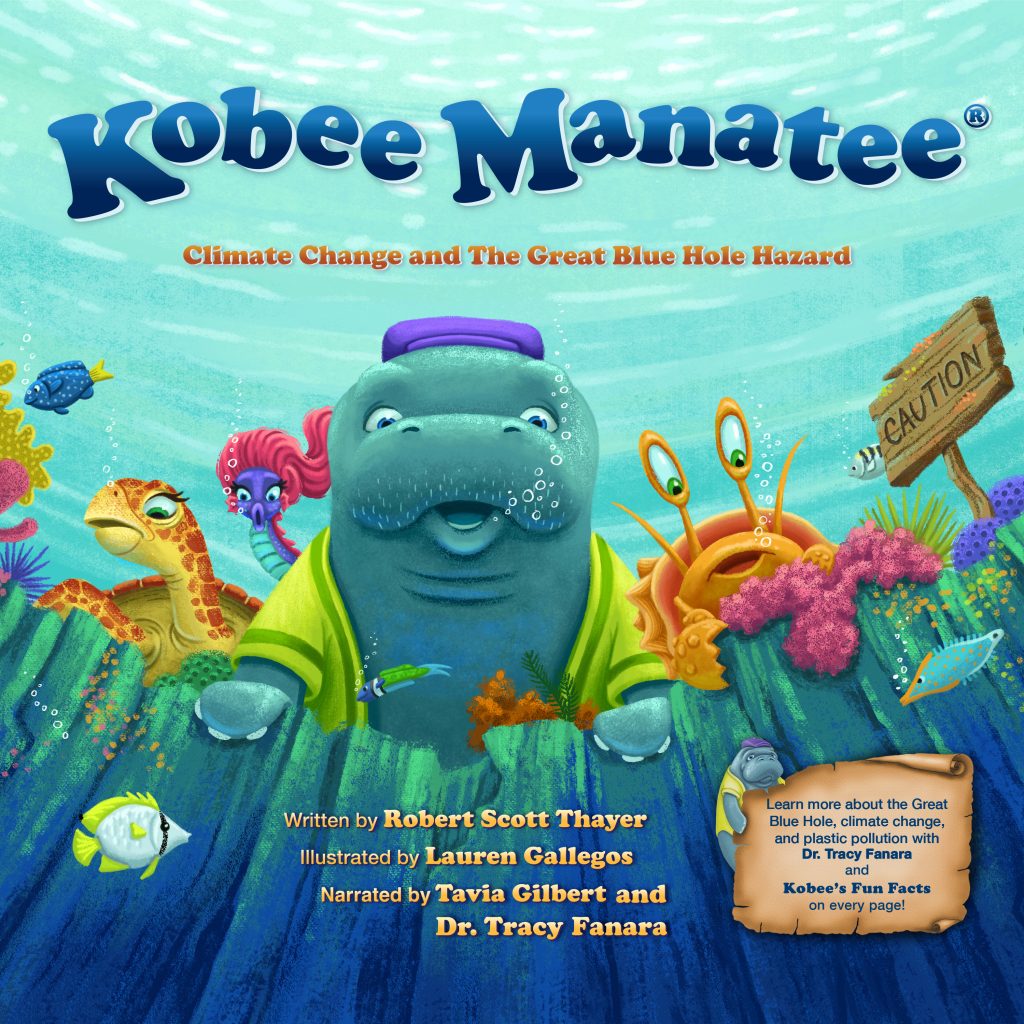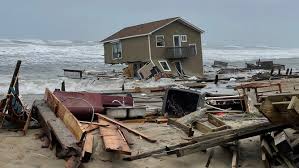Rising Tides Threaten to Banish Millions
Greetings! Climate change continues banishing our precious beaches, not only in the United States, but around the globe. In particular the beaches of North Carolina’s Outer Banks are a major victim to sea level rise. I’d always love grabbing my windsurfer while heading south down route 12 driving past Rodanthe and Salvo to my final destination of Avon, NC. The winds on the Outer Banks are always howling around 20 mph with higher gusts depending on the next front blasting through the area.
The blue waters on the Outer banks are totally majestic as they reflect the sun’s rays and the oscillating winds. Unfortunately, the beaches there are slowly washing away with each tide, which can be blamed on climate change. According to a new study, people living along both the east and west coasts of the United States are facing an increasing risk of “periodic isolation during high tides or storms, if not permanent disconnection from other communities by the formation of new islands.” And this new study said, “… it’s poised to happen on a large scale this century.”
The study, was conducted by environmental engineers Tom Logan and M.J. Anderson from the University of Canterbury in New Zealand, along with Allison Reilly from the University of Maryland. It examines US populations likely to be isolated by rising sea levels. The researches explained, “In the US alone, it may affect as many as 9 to 12 million people by 2100, should the sea level rise meet the higher projections.”
“While rising seas may fully encircle some areas, isolation could also occur if the ocean merely floods or damages key roadways or bridges. That can happen during big storms like hurricanes, but as sea levels rise, it can also occur more frequently during high tides. Flooded roads can prevent people from getting food by blocking access to grocery stores, for example. And while coastal residents could adapt by planning grocery trips around high tides, that may only be a temporary solution as ocean levels continue to rise.”
Logan and Anderson continued and said, “The typical displacement metric for sea-level rise adaptation planning is property inundation, however, this metric may underestimate risk as it does not fully capture the wider cascading or indirect effects of sea-level rise. Isolation might not rival the acute problems caused by inundation, but it’s still a significant part of trying to plan for and adapt to rising seas in coastal communities.”
The researchers explained, “The number of people at risk of isolation from sea-level rise in the US is 30 percent to 90 percent higher than the number of people at risk from inundation and the risk of isolation often comes sooner.”
Here’s an Excellent Way to Talk to Kids with “Soft Facts” about Climate Change
One awesome tool for talking to kids about climate change is to read my fourth installment in the award-winning Kobee Manatee® Children’s Educational Picture Book series. It’s titled, Kobee Manatee® Climate Change and The Great Blue Hole Hazard. It contains “soft facts” about climate change and plastic pollution in our oceans.

When you read this award-winning educational picture book to children, it’s a fun and fictional adventure loaded with weaved in “soft facts” on climate change and plastic pollution. This quickly helps children learn about this serious subject in a fun and entertaining way. Here’s a brief synopsis …
Kobee Manatee, the protagonist and his seafaring pals, Tess the seahorse and Pablo the hermit crab swim from the Cayman Islands to Belize. Kobee wants to help his cousin Quinn clean up plastic litter at her new, all-veggie underwater bistro called Quinn’s Seagrass Café.
On their Caribbean journey they encounter harmful effects of climate change and plastic pollution. As if that wasn’t enough, several other unforeseen problems occur with a distressed loggerhead turtle, a giant Portuguese man-of-war, and a venomous scorpionfish. They’re all amazed when they discover the extraordinary Great Blue Hole. Then their adventure takes another crazy turn when Pablo plunges into its huge abyss!
Each page includes in-depth, scientific details on climate change and plastic pollution in our oceans with Dr. Tracy Fanara, NOAA Research Scientist (aka Inspector Planet). Tracy can be seen on The Weather Channel and CNN as a visiting expert.
We have Fantastic Reviews on this New Release!
“I read the book to my 6-year-old this morning while he was having his breakfast before school and he loved it! We talked about the characters, what it meant for the pollution to be in the oceans for all the sea creatures, and how fun the story was. Thank you so much for writing such a great story for kids that is not only entertaining, but has a message!” – Jessica Vilchis, Co-Host KNBC California Live
“A well-crafted, thoughtful, and well-illustrated addition to a noteworthy educational book series.” —Kirkus Reviews
“Robert Scott Thayer presents an important environmental message in an engaging story with wonderful characters. Anyone who loves the ocean and wants to help save it should read Kobee Manatee: Climate Change and The Great Blue Hole Hazard. I’m looking forward to the next Kobee Manatee adventure.” —Readers’ Favorite
For young readers who enjoy imaginative tales surrounding affable and heroic sea creatures, as well as parents and/or teachers looking for a way to introduce youngsters to the importance of marine conservation, Kobee Manatee® Climate Change and The Great Blue Hole Hazard offers a perfect blend. Highly recommended! – Chanticleer Book Reviews
Keep watching for more of my updates on climate change!
If you see any sick or injured manatees, please call the Florida Fish and Wildlife Conservation Commission at: 1-888-404-3922 (FWCC). They are the folks who are responsible for rescuing us in Florida.
Here’s the Save the Manatee Club link to learn more about us manatees …
Here’s a cool link for you to learn more about how we’re rescued and brought into rehabilitation …
~ Robert Scott Thayer
Related Posts
Climate Change Doomsday Glacier Could Cause 6 Foot Sea Level Rise!
NASA Report Predicts 1 Foot Sea Level Rise by 2050!
Dr. Tracy Fanara aka Inspector Planet Uncovers Extraordinary Science Nuggets!
A National Geographic’s Top 20 Must-See Haven Sinking into Rising Waters of Climate Change!
